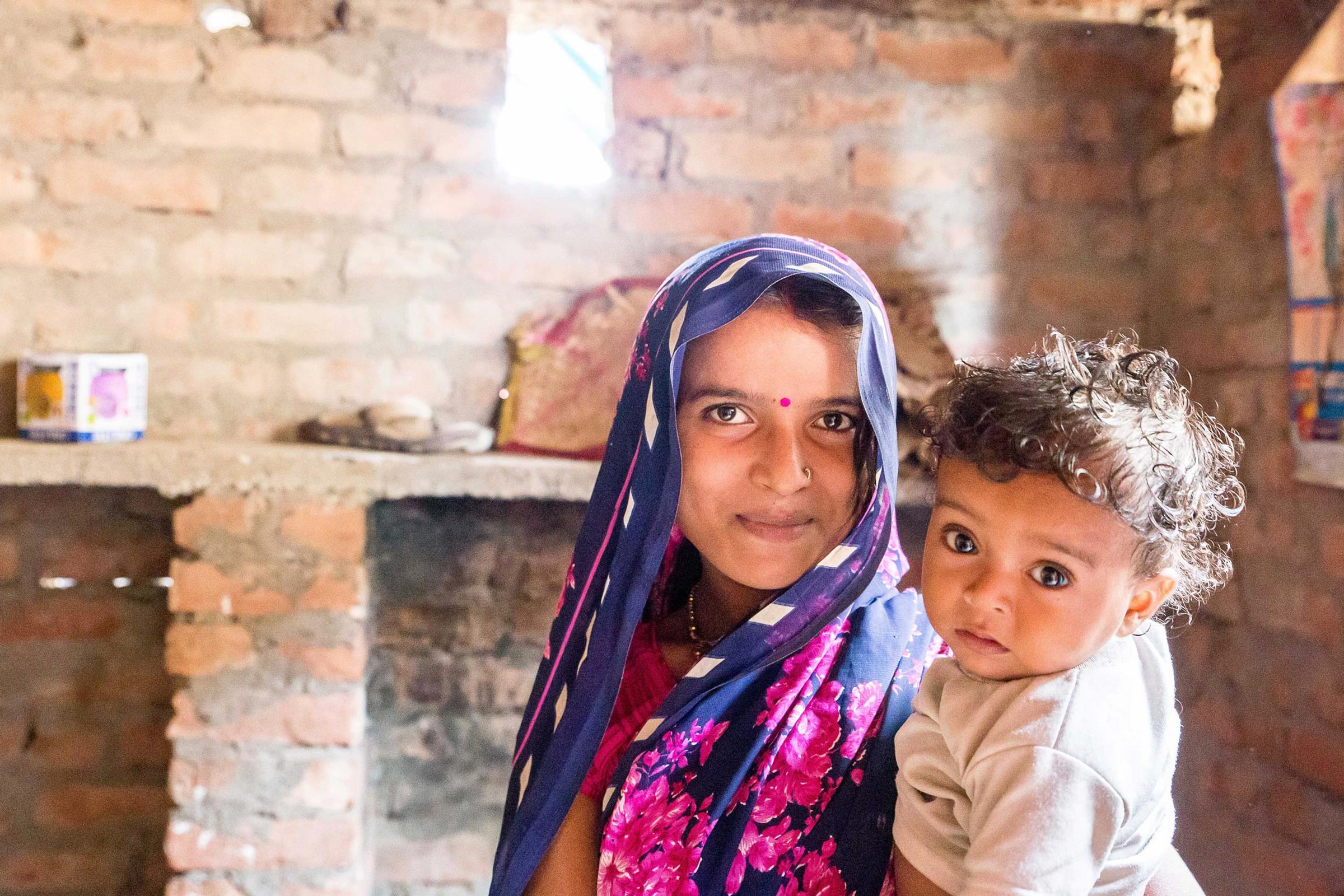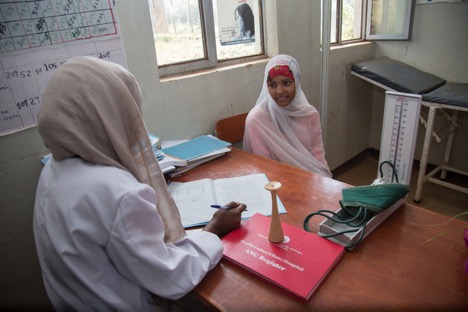CHAI is proud of the progress we have made, in partnership with governments and other organizations, and with support from our donors, to address health issues in low- and middle-income countries in 2018. As we embark on a new year, we are looking back at some of the highlights from our work in 2018, as well as ahead to our goals for 2019 and beyond.

1. The invaluable voice of community advocates
At CHAI, we believe that working with people living with HIV is essential to achieving a lasting impact in the fight against the disease. That is why we partnered with Unitaid and others to form the Optimal ARV Community Advisory Board, comprised of HIV community representatives across 11 African countries. The board supports demand for new and better HIV treatment regimens and strengthens the HIV community’s role in how these regimens are planned and rolled out. In 2018, after hearing about the success many patients had on a new regimen that includes a best-in-class medicine called dolutegravir (DTG), the board was instrumental in building demand among people living with HIV. …Read more.
2. Kenya introduces ambitious efforts to tackle pneumonia
In Kenya, pneumonia kills about 13,000 children annually. CHAI, with support from the IKEA Foundation, is working with the government to reduce pneumonia deaths by incorporating into the country’s healthcare system the critical measures necessary to diagnose and treat the illness rapidly and affordably. Many of the interventions, though targeted at pneumonia, are also important for treating other childhood illnesses. CHAI is working to make these interventions part of a comprehensive approach to improve the quality of children’s care across the country. …Read more.
3. Healthier nutritional supplement rolls out to 3.5 million children in India
In 2018, three nutritional supplements were introduced across the state of Madhya Pradesh, which carries the third highest burden of malnutrition in India. CHAI, with support from the IKEA Foundation, worked with the government to reformulate recipes for existing supplements, which are already distributed for free across the state, to include more protein and micronutrients and reduce the amount of sugar. …Read more.

4. Breakthrough pricing agreement lowers costs and increases access to diagnostics
This agreement will significantly reduce the cost of diagnostic testing for HIV/AIDS, hepatitis, and cervical cancer for millions of people in low- and middle-income countries. The deal enables public sector programs to access the Hologic Panther system, an integrated molecular diagnostic instrument, at an affordable price. The testing platform generates faster results to patients, increasing adherence to treatment. CHAI and our partners announced the agreement at the 2018 International AIDS Conference. …Read more.
5. Increasing access to life saving malaria medicines in remote communities
A consortium of partners, led by CHAI, launched the Community Access to Rectal Artesunate for Severe Malaria (CARAMEL) project to reduce global mortality among children by quickly and effectively treating them in the communities where they live. CARAMEL is rolling out pilots across several countries to test the use of rectal artesunate medicine in remote areas where patients have poor access to health facilities. …Read more.
6. New plan to improve cancer treatment in Nigeria
In 2018, Nigeria launched a plan to prevent and treat cancer in the country. Over the next five years, the Cancer Control Plan will serve as a roadmap for the Ministry of Health to improve cancer care through better access to screening, more affordable treatment options, and improved public awareness about the disease, among other initiatives. CHAI worked with the ministry and the American Cancer Society to develop the plan. …Read more.
7. India to ‘go where the patients go’ in push to eliminate tuberculosis
India has made private sector engagement a national priority in order to find, test, and get on treatment as many tuberculosis (TB) patients as possible. CHAI is supporting this ambitious plan through a Global Fund-supported project called the Joint Effort for Elimination of Tuberculosis (JEET). JEET aims to more closely connect private hospitals, clinics, and labs with public health programs in order to facilitate better reporting of TB cases, make affordable TB diagnostics available in the private sector, and help patients stay on treatment until it is complete – no matter where they seek care. …Read more.
8. Partnering with the Surgo Foundation
CHAI and the Surgo Foundation announced a new partnership to address global health challenges based on both organizations’ unique skillsets. This project, the first of many that Surgo and CHAI hope to collaborate on, will help the local government and its partners in Chennai, India, to reduce the burden of TB through the TB Free Chennai Initiative. Each year, around 23,000 cases of TB develop in Chennai, of which less than 10,000 are reported to the local government. This new partnership seeks to get patients to diagnosis and care sooner to reduce deaths and prevent the spread of the disease. …Read more.

9. CHAI wins €1 million award for innovative approach to maternal and newborn health
CHAI was awarded a Horizon Birth Day Prize by the European Commission and the Bill & Melinda Gates Foundation for our integrated maternal and neonatal health approach, which achieved dramatic reductions in mother, newborn and stillbirth mortality rates within 18 months in northern Nigeria. …Read more.
10. Looking toward the future
In 2018, we renewed CHAI’s strategy and set important goals for the future. CHAI has been able to achieve some remarkable milestones in the past thanks to the continued support of our donors, the leadership of our partner governments and our strong relationships with local communities, global organizations, other NGOs, and health service providers. CHAI’s annual report reflected on our accomplishments from 2017 and laid out our goals for the future.…Read the report now.





